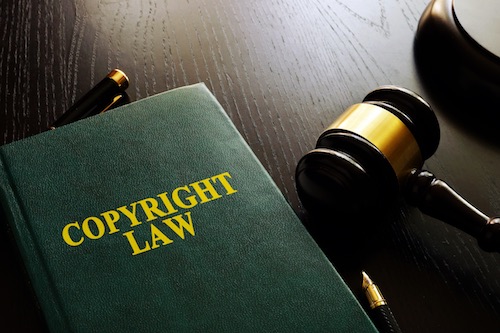On Monday, August 27th, the U.S. Court of Appeals for the Ninth Circuit issued a decision which upheld the dismissal of a copyright infringement case appealed from the District of Oregon. The panel, consisting of Circuit Judges M. Margaret McKeown and Richard Paez and District Judge Robert Lasnik, affirmed the decision of the district court in finding that the producers of the 2014 film The Cobbler did not prove allegations of either direct or contributory copyright infringement against the registered subscriber of an Internet protocol (IP) address through which the infringing activity took place.
This case relates a lawsuit filed by Cobbler Nevada, the company holding the copyrights covering The Cobbler, in Oregon district court back in May 2015. In the first filed complaint, Cobbler Nevada filed the suit against a John Doe defendant and identified an IP address associated with that defendant. A subpoena of IP address records held by Comcast identified a Thomas Gonzalez as the individual who had registered that particular address. After communicating with Gonzalez via telephone, counsel for Cobbler Nevada concluded that Gonzalez was not himself the likely infringer after learning that the IP address was accessible to both residents and visitors at an adult care home operated by Gonzalez.
In November 2015, Cobbler Nevada filed a first amended complaint identifying Gonzalez as the sole defendant, basing its copyright infringement claim upon the facts that Gonzalez was the subscriber of the IP address used to download or distribute the movie and that Gonzalez had not responded to more than 400 notices of infringing activity. Oregon district court dismissed both the direct and contributory infringement claims because there were no facts connecting Gonzalez to the infringing activity and Gonzalez’s failure to stop the infringing activity did not constitute active encouragement of the infringement which was necessary to prove contributory infringement.
The district court gave Cobbler Nevada leave to file a second amended complaint and the plaintiff did so, again identifying the IP address as the sole Doe defendant and including no new factual allegations. The magistrate judge in the case then ordered Cobbler Nevada to show cause why the second amended complaint should not be dismissed either for failure to cure the deficiencies in the first amended complaint or for failure to identify the unknown party. Cobbler Nevada entered a voluntary dismissal of the second complaint and the district court awarded attorney’s fees to Gonzalez of nearly $18,000.
On appeal, the Ninth Circuit panel found that the district court had properly dismissed both the direct and the contributory infringement claims with prejudice. Although Cobbler Nevada had established a connection between Gonzales and the offending IP address, establishing a claim of copyright infringement required the plaintiff to show that the defendant himself violated the plaintiff’s exclusive rights under the Copyright Act. Citing to the Supreme Court’s standards for pleading under Iqbal/Twombly, the Ninth Circuit determined that this claim involved a situation where the facts pled by the plaintiff stopped short of the line “between possibility and plausibility of entitlement to belief.”
On the contributory infringement claim, the Ninth Circuit cited to its own decision in 2007’s Perfect 10, Inc. v. Amazon.com, Inc. to note that contributory infringement requires intentional inducing or encouragement of direct infringement. “At the outset, we recognize that Gonzales’s position—a subscriber to internet service—does not fit cleanly within our typical contributory liability framework, which often involves consumer-facing internet platforms,” the Ninth Circuit opinion reads. However, other technology-based cases, such as the Supreme Court’s 1984 decision in Sony Corporation of America v. Universal City Studios, did create a useful framework for this particular case. The Ninth Circuit found that Sony limited the liability of imputing intent to a defendant simply on the knowledge that a product might be used for infringement. Minus any evidence supporting the active encouragement of infringement by Gonzalez, Cobbler Nevada’s argument “effectively creates an affirmative duty for private internet subscribers to actively monitor their internet service for infringement. Imposing such a duty would put at risk any purchaser of internet service who shares access with a family member or roommate, or who is not technologically savvy enough to secure the connection to block access by a frugal neighbor.”

![[IPWatchdog Logo]](https://ipwatchdog.com/wp-content/themes/IPWatchdog%20-%202023/assets/images/temp/logo-small@2x.png)


![[Advertisement]](https://ipwatchdog.com/wp-content/uploads/2024/03/IP-Copilot-Apr-16-2024-sidebar-700x500-scaled-1.jpeg)
![[Advertisement]](https://ipwatchdog.com/wp-content/uploads/2024/04/Patent-Litigation-Masters-2024-sidebar-early-bird-ends-Apr-21-last-chance-700x500-1.jpg)

![[Advertisement]](https://ipwatchdog.com/wp-content/uploads/2021/12/WEBINAR-336-x-280-px.png)
![[Advertisement]](https://ipwatchdog.com/wp-content/uploads/2021/12/2021-Patent-Practice-on-Demand-recorded-Feb-2021-336-x-280.jpg)
![[Advertisement]](https://ipwatchdog.com/wp-content/uploads/2021/12/Ad-4-The-Invent-Patent-System™.png)







Join the Discussion
No comments yet.